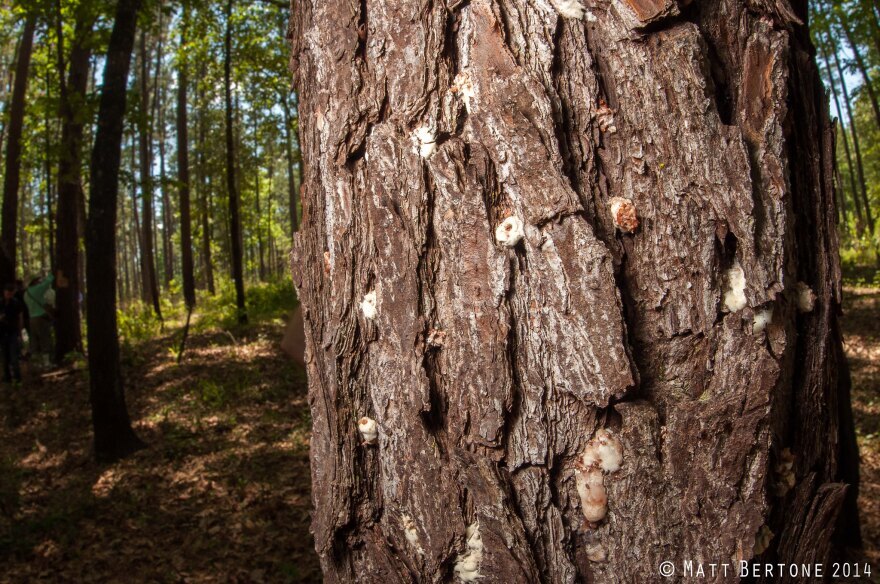New England forests at risk after discovery of southern pine beetle in Maine

Characteristic “pitch tubes” of a recently attacked pine tree. Blobs of resin are where the tree tried to expunge the boring insects. (Matt Bertone / North Carolina State University)
One of the most destructive forest pests in the Southeast has made its way to Maine. The southern pine beetle, which has destroyed millions of acres of pine forests in its native South, was discovered in Waterboro last fall. Scientists say the ecosystem of Maine’s pitch pine barrens is at risk.
Its Latin genus name Dendroctonus means “tree killer.” One southern pine beetle is only half the size of a grain of rice. Yet, its infestations are vast enough to be seen from outer space. This highly adapted tree killer prefers the “hard pine” species like red, pitch and jack, and is by nature epidemic.
“A couple singular beetles can’t really hurt a tree or they’re often in dead or dying trees,” said Caroline Kanaskie, a Ph.D. student from University of New Hampshire who discovered the insect in pheromone-baited traps in southern Maine last fall. “But when thousands of beetles are there together, and they’re communicating with these chemicals, they can mass attack single healthy trees and continue the cycle from there.”
Kanaskie says the beetle, which kills thousands of acres of pine forest annually, could harm New England’s pitch pines community.
“Pitch pine harbors an ecosystem that we call the pitch pine barrens that’s really unique. It has a bunch of unique plant and animal species. There are these butterflies that people study just in the pine barrens. This is the only place that they’re found, in the pine barrens of the northeastern United States.”
For the rest of this story, including the audio version, please visit MainePublic.org.
